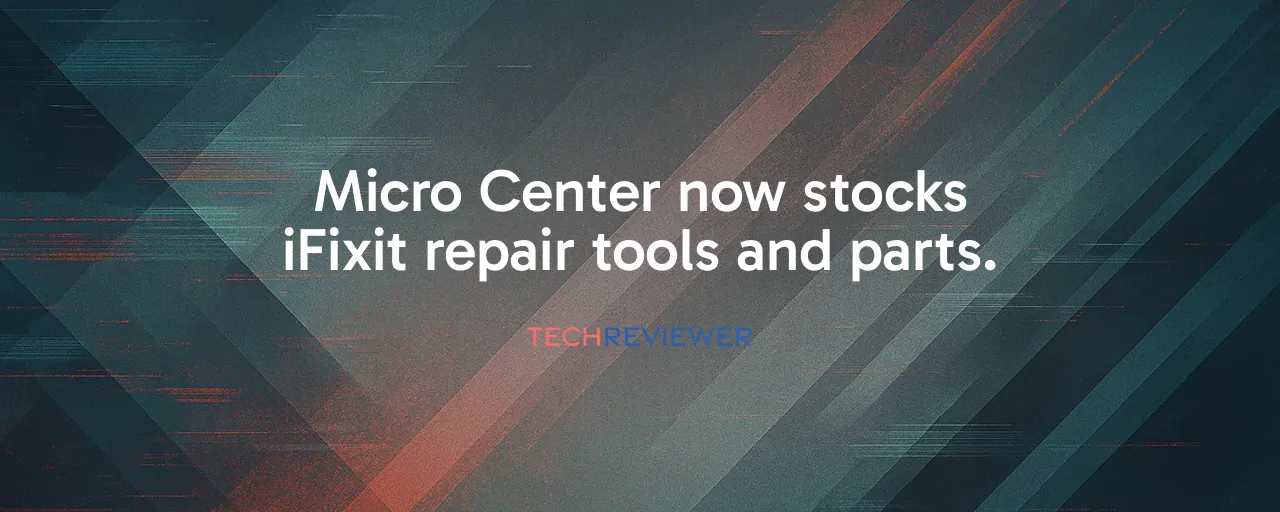A New Era for Fixing Your Own Devices
Walking into a Micro Center store now feels like stepping into a haven for anyone who loves tinkering with electronics. The retailer's recent partnership with iFixit, announced on October 7, 2025, puts repair tools, parts, and expert advice within reach for everyday consumers. From precision screwdrivers to replacement batteries, iFixit's gear is now on store shelves across Micro Center's 29 locations in 19 states. This move makes it easier than ever for hobbyists and everyday users to breathe new life into their smartphones, laptops, or gaming consoles without relying on costly manufacturer services.
The collaboration blends iFixit's vast online library of over 100,000 repair guides with Micro Center's physical retail presence. Customers browsing iFixit's website can now find nearby stores through a built-in locator and book free consultations with certified technicians. This setup bridges the gap between digital know-how and hands-on support, addressing growing demand for accessible repair options as devices become more complex and expensive.
Why Repairs Matter More Than Ever
Fixing a cracked phone screen or swapping out a laptop battery can save consumers 50 to 70 percent compared to manufacturer repair services. Beyond cost, repairs extend device lifecycles, cutting down on the 62 million tonnes of electronic waste generated globally in 2022. With only 22.3 percent of e-waste properly recycled, initiatives like this one help reduce environmental harm from hazardous materials like lead and mercury found in discarded electronics.
The partnership arrives at a pivotal moment. California's SB 244, effective July 2024, mandates that manufacturers provide repair tools and parts for devices, a law now echoed in states like Colorado and Oregon. These regulations empower consumers and independent repair shops, challenging manufacturer-controlled service ecosystems. By stocking iFixit's professional-grade tools, Micro Center enables customers to take advantage of these new rights, fostering a culture of repair over replacement.
Lessons From Apple and Crisis-Driven Repairs
Apple's evolving stance on repairs offers a compelling case study. Initially resistant, the company supported California's SB 244 in 2024, a shift driven by public pressure and legislative momentum. Challenges like parts pairing, where software locks limit replacement components, persist. For example, swapping batteries between two new iPhones can trigger warnings about non-genuine parts, even if both are authentic. This highlights the need for partnerships like Micro Center and iFixit, which provide access to compatible parts and tools to bypass such restrictions where legally permissible.
Another example comes from iFixit's work during the COVID-19 pandemic, when it collaborated with hospitals to create repair guides for medical equipment. This effort built the largest database of its kind, enabling healthcare providers to maintain critical devices during supply shortages. The lesson shows that when repair resources are accessible, communities can solve urgent problems independently. Micro Center's in-store consultations mirror this approach, offering immediate diagnostic support to empower users.
Challenges and Opportunities Ahead
Despite its promise, the partnership faces hurdles. Micro Center's 29 stores cover only parts of 19 states, leaving many without access to in-store services. Proprietary designs, like glued components in newer devices, complicate repairs, and supply chain issues can limit part availability. Manufacturers' software locks, such as Apple's parts pairing, further restrict what independent repairs can achieve without regulatory or industry cooperation.
Still, the collaboration opens exciting possibilities. Micro Center's $2.4 billion revenue and strong per-store performance ($84 million annually versus Best Buy's $40.4 million) show its knack for serving dedicated customers. By integrating iFixit's tools, the retailer could attract more foot traffic and build loyalty among DIY enthusiasts. For iFixit, physical retail expands its reach beyond its 3 million monthly online users, creating tangible touchpoints for its community-driven mission. As right to repair laws spread, with 10 new state bills introduced in 2025, this model could inspire other retailers to join the repair movement.
A Step Toward a Repair-Friendly Future
The Micro Center-iFixit partnership signals a shift toward empowering consumers to take control of their devices. It's a practical response to growing calls for sustainability and ownership rights, offering tools, parts, and expertise in one place. DIY hobbyists can master new skills, while casual users save money and reduce waste. Independent repair shops also benefit from easier access to reliable parts, leveling the playing field against manufacturer services.
As more states adopt repair-friendly laws and consumer awareness grows, partnerships like this could redefine how we interact with our devices. Making repairs approachable and affordable, Micro Center and iFixit pave the way for a world where fixing your phone feels as natural as upgrading your PC.
